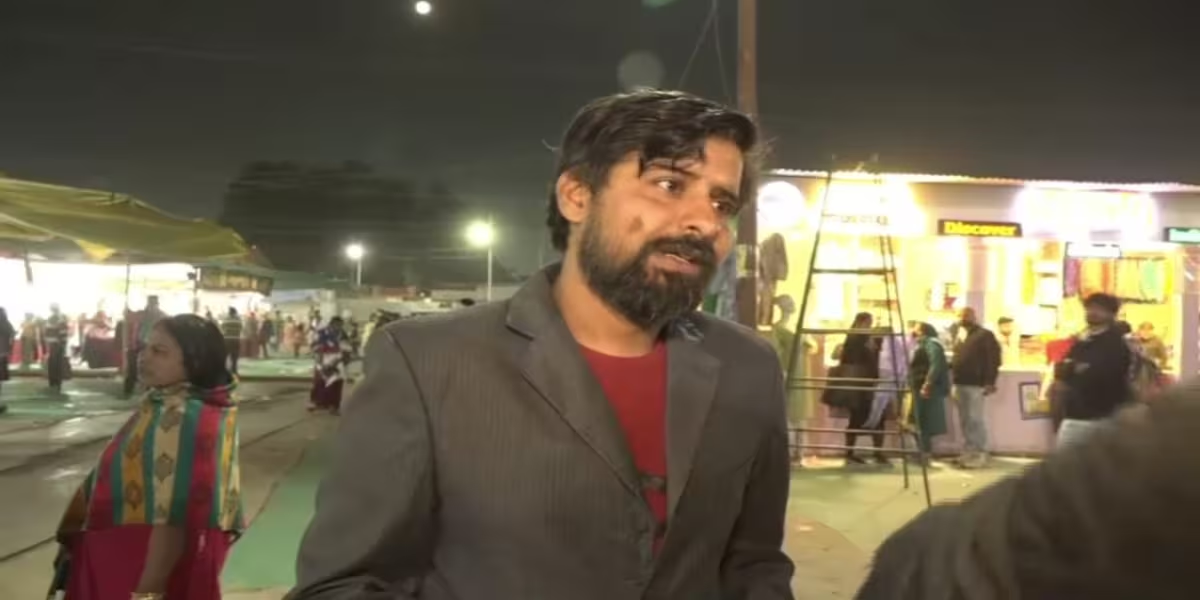The Maha Kumbh Mela, a spiritual and economic hub for millions, has turned into a financial nightmare for Jai Sharma, a Delhi-based businessman who invested ₹17 lakh in a food stall at the event. His story highlights the risks small entrepreneurs face at large-scale gatherings. Here’s a breakdown of the crisis:
Key Details of the Loss
- Jai operated a premium vegetarian food stall near the sangam (river confluence), targeting middle-class pilgrims.
- Investment included stall setup, permits, inventory, and staff hiring.
Financial Breakdown:
₹8 lakh:
- Stall licensing and infrastructure (tents, cooking equipment).
₹6 lakh:
- Inventory (organic ingredients, packaged water).
₹3 lakh:
- Labor and logistics (15 temporary workers).
Revenue:
- Barely ₹2 lakh earned due to poor footfall and competition.
Causes of the Loss
Overestimation of Demand:
- Jai targeted 500 customers/day but averaged 50–70, as pilgrims opted for cheaper langars (community kitchens) and street vendors.
Logistical Hurdles:
- Stall was allocated in a poorly connected zone due to last-minute permit delays.
- Restricted access during VIP movements and security checks further reduced visibility.
Unregulated Competition:
- Proliferation of unauthorized stalls undercut prices (e.g., ₹20 samosas vs. Jai’s ₹100 “gourmet” snacks).
Weather and Health Issues:
- Heatwaves (45°C+) deterred pilgrims from lingering at paid stalls.
- Spoilage of perishable items due to inadequate refrigeration.
Impact on Jai Sharma
Debt Burden:
- Took loans at 18% interest; now faces repayment defaults.
Mental Health Strain:
- Reports of anxiety and family tensions.
Loss of Trust:
- Partner investors threaten legal action.
Broader Systemic Issues
Lack of Government Support:
- No insurance schemes or subsidies for small businesses at the Kumbh.
- Delayed grievance redressal by the Prayagraj Mela Authority.
Exploitation by Middlemen:
- Jai paid ₹2 lakh extra to “agents” for stall allotment, a common malpractice.
Market Saturation:
- Over 10,000 licensed stalls competed for 5 crore pilgrims, creating a supply-demand mismatch.
Response from Authorities
Prayagraj Mela Authority:
- Claims to have “transparent processes” but admits to challenges in managing unregistered vendors.
UP Government:
- Promised to review grievances post-event; no immediate relief announced.
Lessons for Future Entrepreneurs
Risk Assessment:
- Avoid overinvestment without demand surveys.
Location Scrutiny:
- Ensure stalls are in high-traffic zones.
Cost Control:
- Partner with NGOs/langars to reduce overheads.
Insurance:
- Explore event-specific business insurance (rare but emerging in India).
What’s Next for Jai?
- Seeking crowdfunding via social media to repay loans.
- Planning to file a PIL against middlemen and permit irregularities.
- Local trader associations demand a compensation fund for loss-making vendors.
FOLLOW:https://newsroom47.com/bjps-delhi-cm-race-4-leaders-vie-for-the-top-spot/
Newsroom 47
